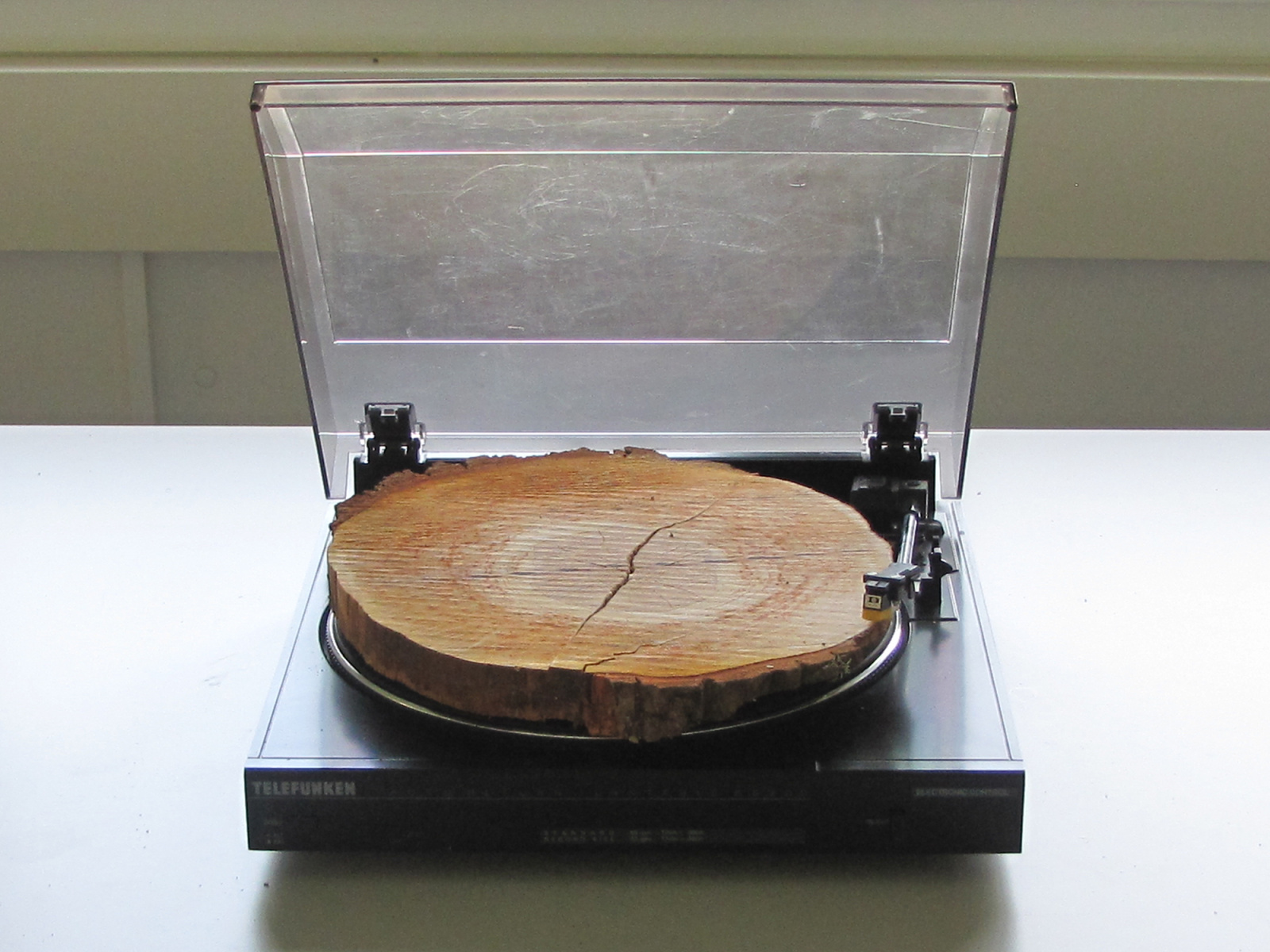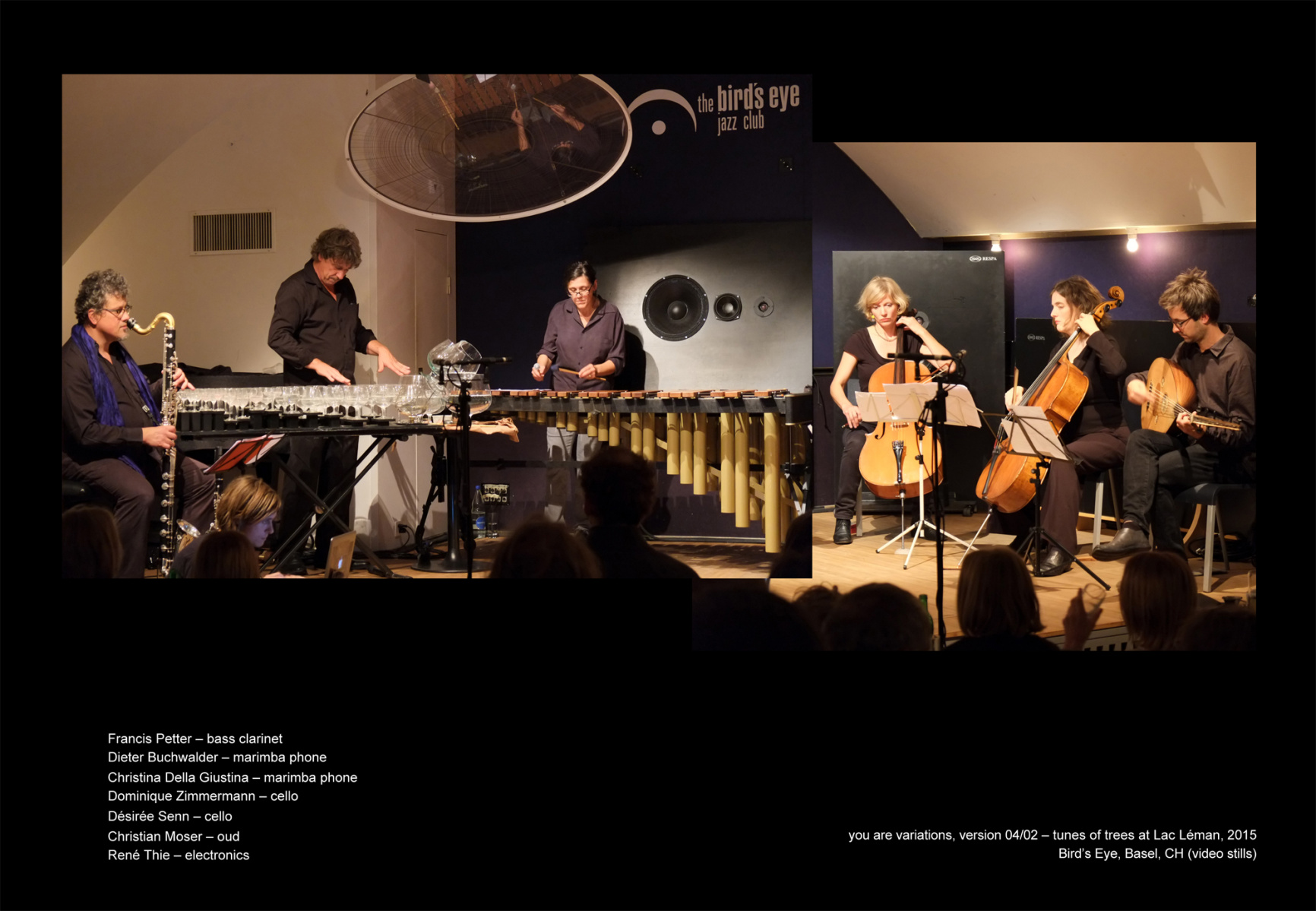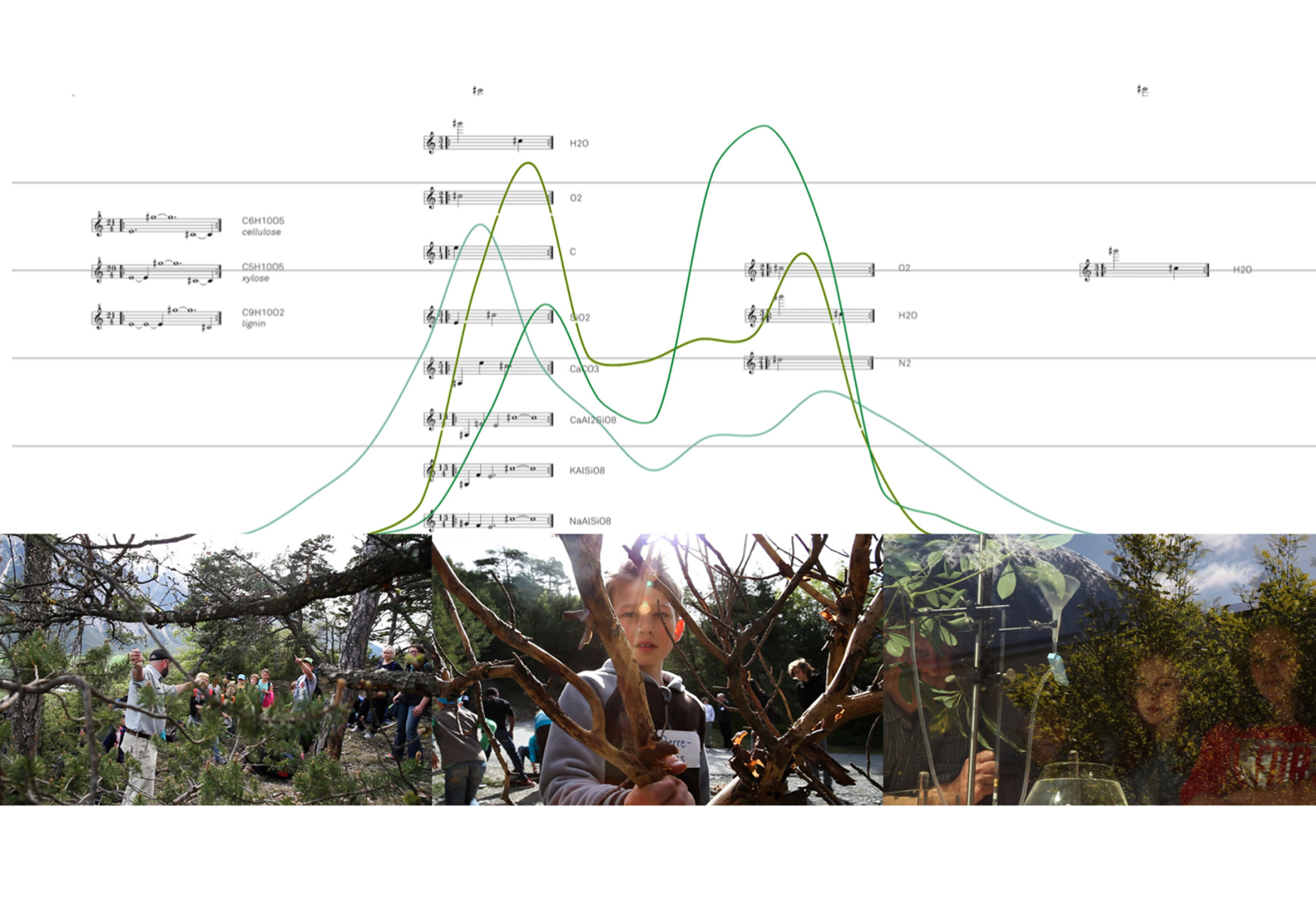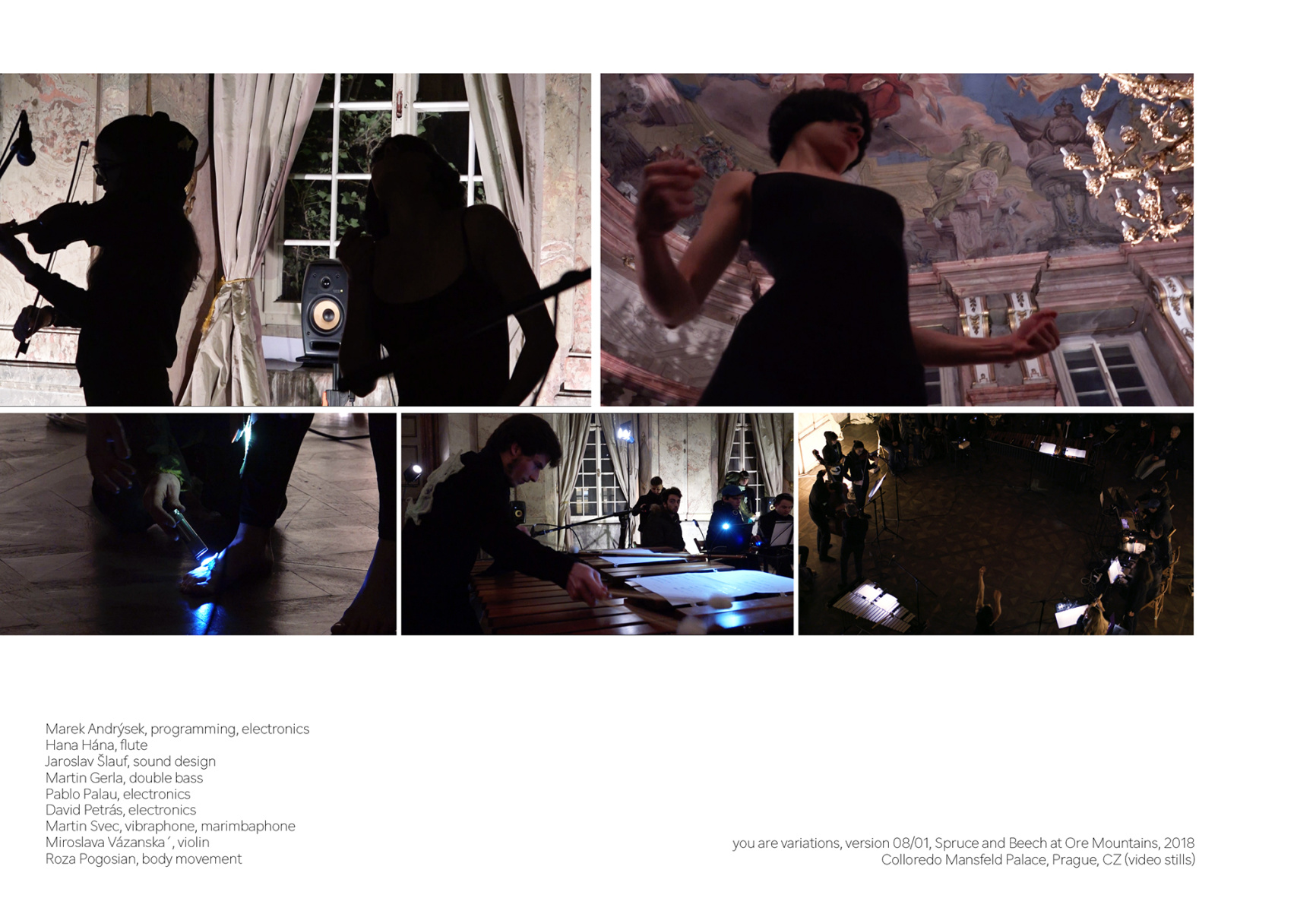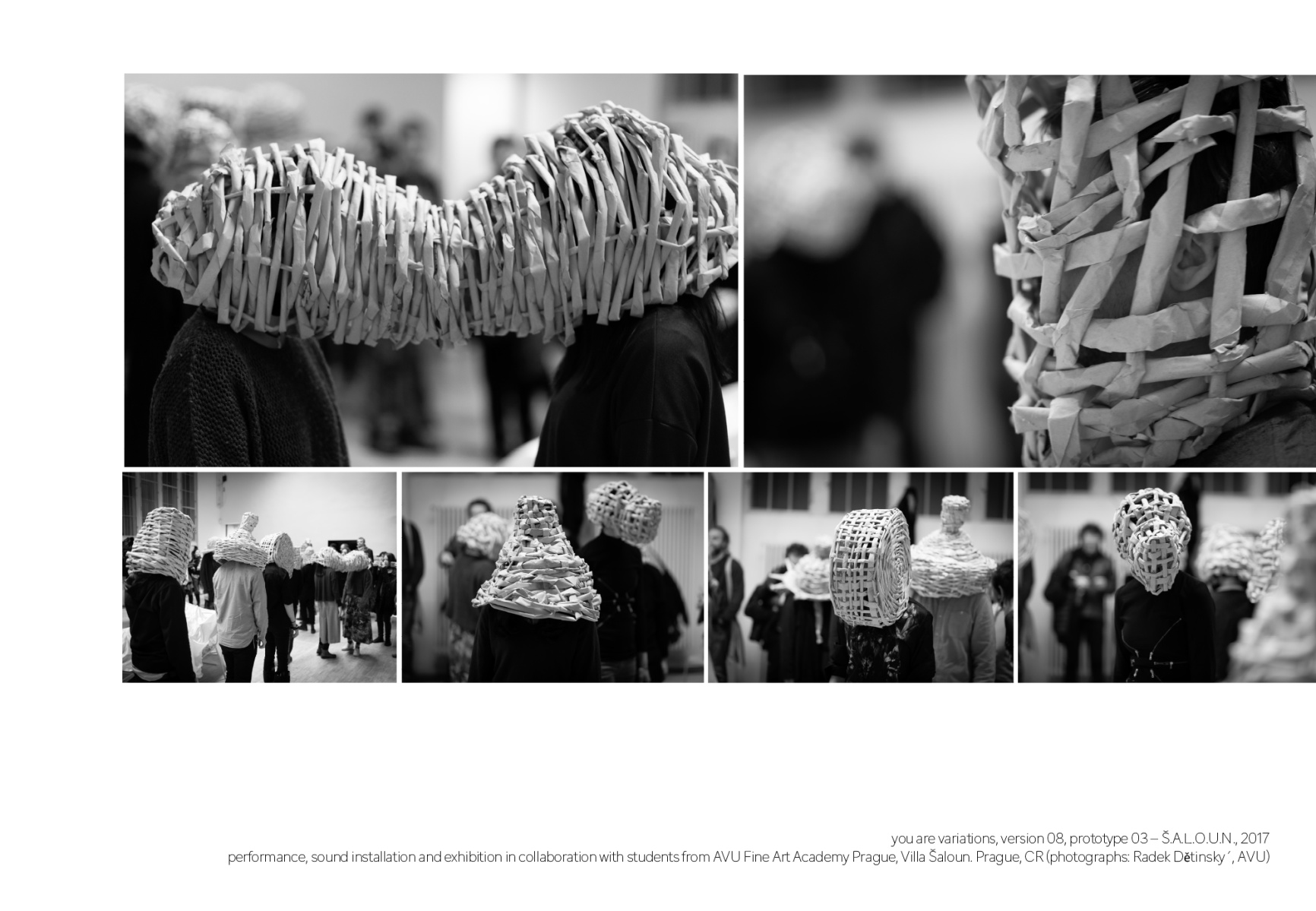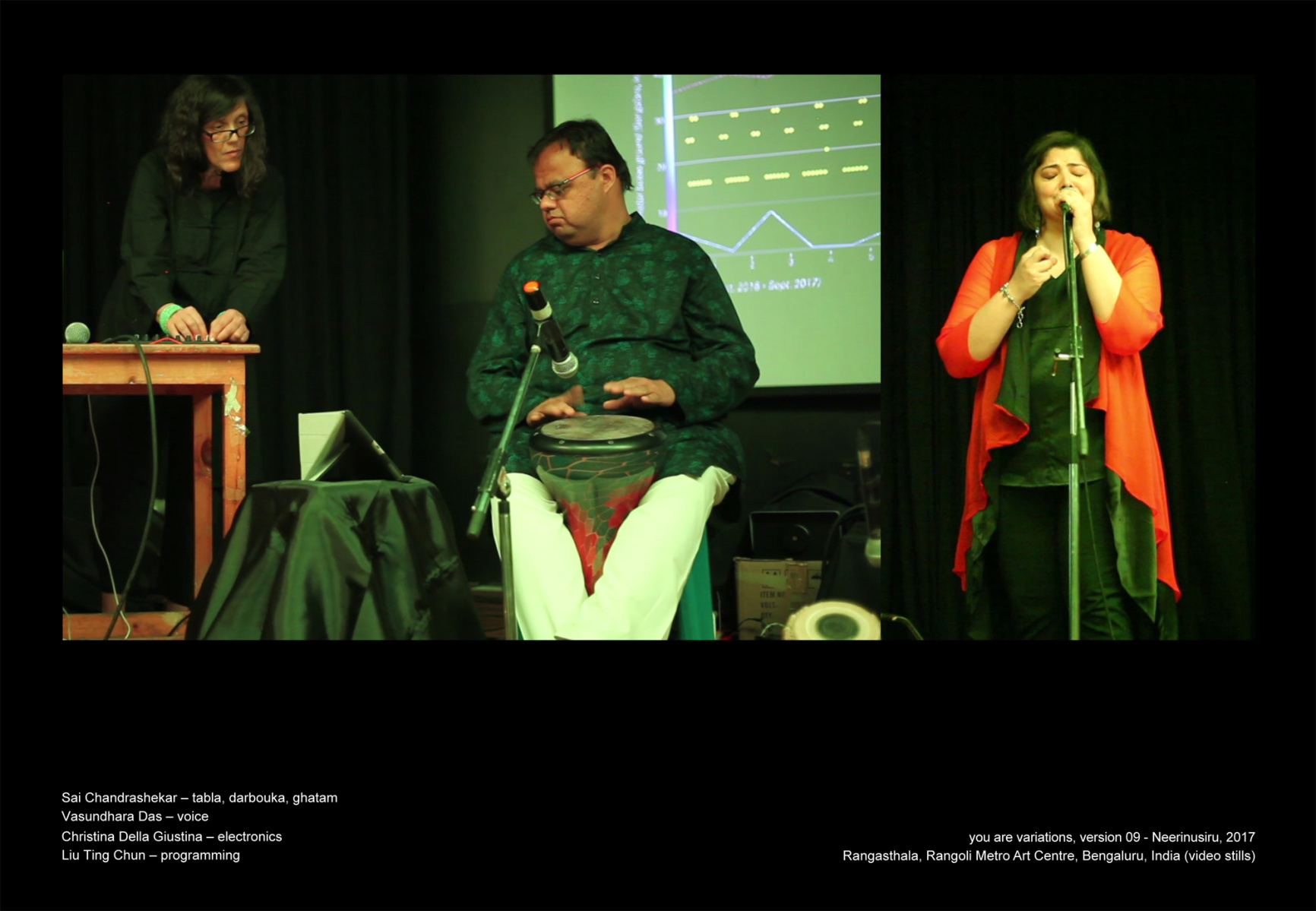Christina Della Giustina
you are variations, versions 01 - 09
you are variations is a ten-year study of tree water-cycles in which scientific climate change research has provided environmental data on sap flow that is transposed into a musical score
Featured Media
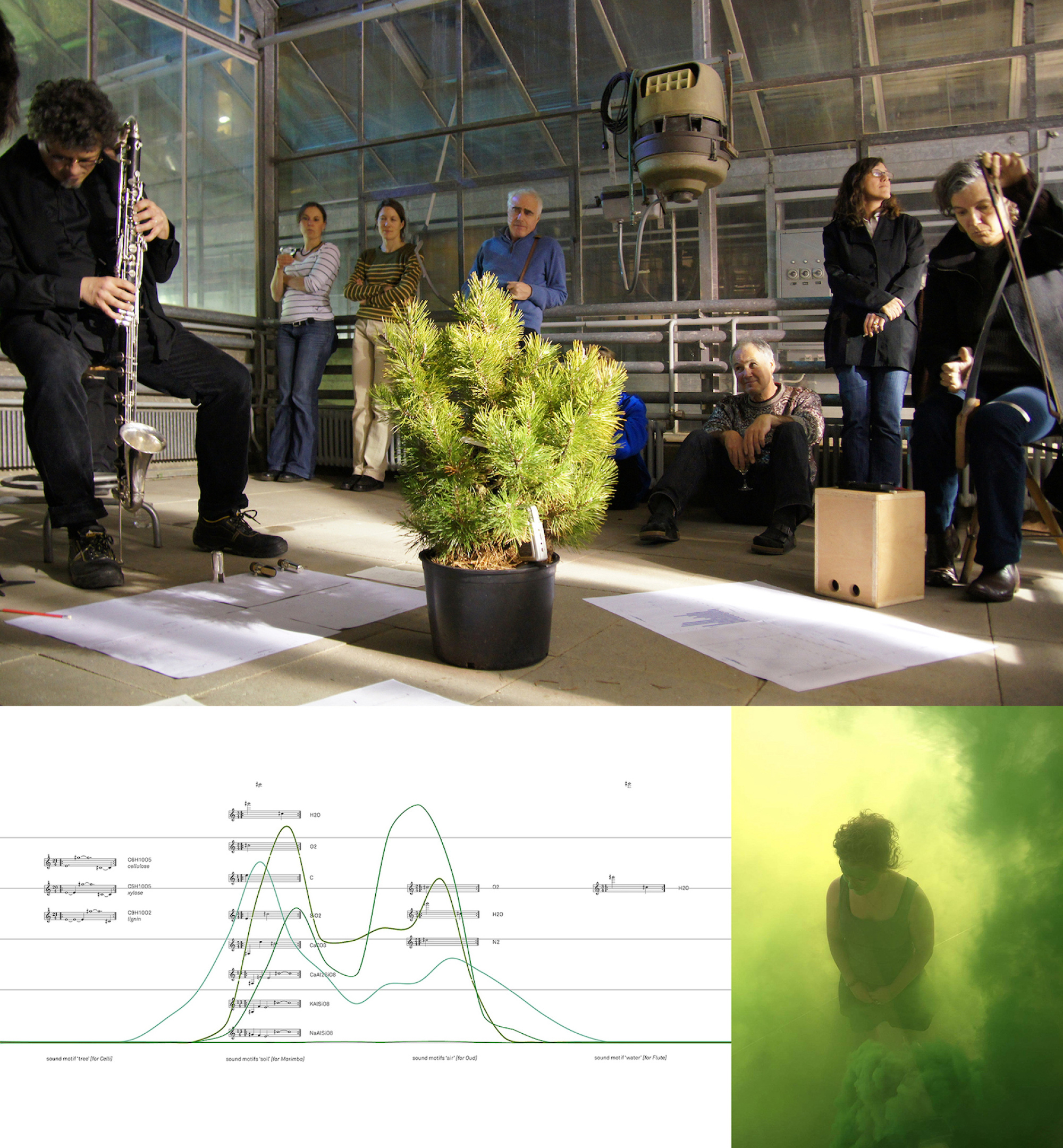
The score is enacted live in collaboration with electro-acoustic ensembles.
By turning climate data into sound-performances, the research draws attention to the energy balance of trees under changing environmental conditions, contributing to scientific research concerned with climate futures, and evidences a committed stance in art as sustained experimental (re-)search into transformative power.
Inspired ecopolitically by I. Stengers, D. J. Haraway and B. Latour, aesthetically by P. Oliveros, C.C. Hennix et. al., the project exercises how to think and work across wounded worlds together.
In gathering disciplines that are unfamiliar to each other – linking environmental, cultural and mental ecologies – the project reveals ‘difference’, theoretically drawing on the work of Whitehead, Guattari, Deleuze, Nancy and Grosz.
The key methodology, ‘ecology of translation’, incites gaps and transpositions as acts of mediation in a complex process of evolving relationalities between art-music, science and the climate. It conceives of ‘trans-lation’ as human, and more-than-human activity; creative in the making of a ‘re-lational, resonant kinship’, based not on sameness, but alterity.
It is the experience of wholeness that is the significant outcome of this transdisciplinary practice across a vast range of contemporary climate urgencies.
The conclusion elicits a new term for the felt experience of wholeness instantiated by you are variations performances: /wi/. Addressing the problematic term ‘we’, exclusive in its presupposed inclusivity, /wi/ denotes the experiential communion of tree, you and self, exemplified in the poetic, ecopolitical movement the research brought about: in asking ‘Can we learn to listen to a tree?’ you are variations advocates how to become /wi/ with the world.
The project practises facing urgent environmental challenges together.
The research that informs it impacts the development of academic climate and sustainability research.
Since 2011 I have worked in collaboration with the Swiss Federal Institute for Forest, Snow and Landscape Research WSL and its European network and global partners. In the publication Recomposing Art and Science (2016), Prof Dr Rigling, Co-director and Head of Research Unit Forest Dynamics at WSL, reportes on the project’s impact on his research, commenting on the benefits of its creative interpretation of sap flow measurements towards climate research, and the insight and awareness this has generated.
The approach to musical composition has brought about new insights into present-day orchestral performance and impacted musicians involved in performing the data scores, often challenging their approach to musical interpretation.
The research method has been widely recognised and shared through workshops at the Slade School of Fine Art, UCL; Art Academy of Fine Arts, Prague; HKU University of the Arts Utrecht; Zurich University of the Arts and San Francisco Art Institute SFAI.
you are variations has produced four books, twenty-two performances, nine sound-installations, nine video-installations and nine light-installations, and has been published widely.
Its public reception has been remarkable. The imaginative approach in its ‘ecology of translation’ generates events, music and collaborations through the encounters it creates. Its results have entered public discourse through invitations to main cultural venues in Amsterdam, Bangalore, Basel, Berlin, London, Montreux, Prague, San Francisco and Zurich.
you are variations operates across science, music and performance in art, creating lines of mediation, communication and exchange between numerous disciplines.
My thesis reveals that listening as ‘active tuning in’ can lead to a resonant mode of relation, /wi/, an inclusive ‘tree ecology’.
A case study records the effects: in rehearsals for the second interpretation of a Scots pine suffering from drought in the Valais canton of the Alps – an intense collaboration between 4 musicians, 4 scientists, 25 children, one artist and a constellation of trees – a formerly mute child started to sing and speak.
you are variations, version 02 - wiir sii d’Böüm - might serve as an example as one of the 22 events the research project brought about.
It has been performed at:
- Cultural Centre Sosta, Leuk, VS, CH; May 1 2015
- Jazz Festival Montreux, CH; July 18 2015
- Ferme d’Asile, Sion, CH; Oct. 30 2015
The project-week, as well as the public presentations in Leuk, Montreux and Sion, are part of the Agora Project State of the Art – Science and Art in Practice of the Swiss National Science Foundation SNF.
Project lead: artists-in-labs program, ZHdK, Zurich, CH.
Supported by Swiss National Science Foundation SNF, Berne, CH and Foundation Mercator Switzerland, Zurich, CH.
Musicians - orchestration:
- Dieter Buchwalder - glass harp, percussion
- Francis Petter – saxophone, bass clarinet
- Désirée Senn – cello, voice
- René Thie – electronics
- 25 children from Leuk, Vallais – various, a.o. also self-made instruments
Online audio-video documentation
https://vimeo.com/139320610 (documentary)
https://vimeo.com/user25007893/yav-01-02-documentary
https://vimeo.com/165268814 (performance Ferme d’Asile 2015)
https://vimeo.com/user25007893/youarevariations0102childrendrawings2015 (children drawings)
Informed Ethical Consent in the creative work with the children from Primary School Leuk in the Vallais in Switzerland is ensured.
you are variations not only impacts children, but it might be one of its most noble and meaningful benefit.
you are variations, version 01 - 09 (2011 - 2019)
durational documentation in full-length, as well as excerpts of all 9 versions,
their diverse interperetations and prototypes, including musical scores can be found online.
Supervisors
Primary supervisor: Jayne Parker
Secondary supervisors: Jon Thomson
